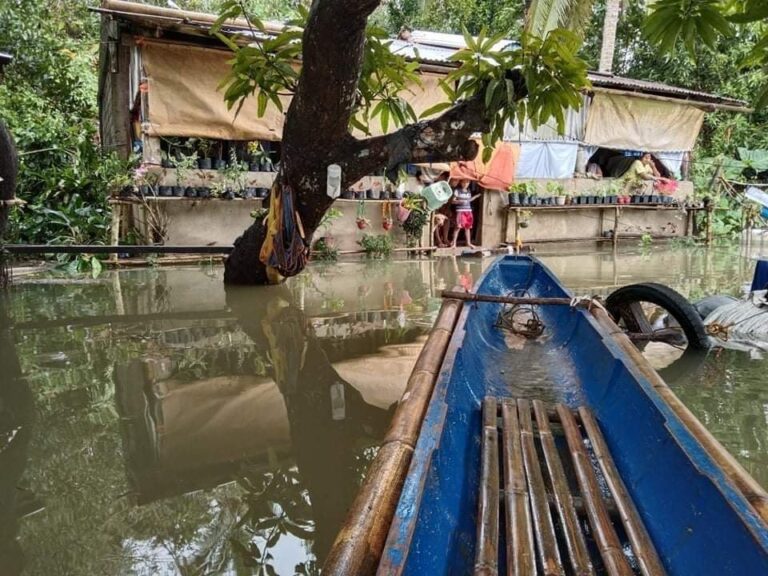The director of Caritas Philippines (NASSA) says a global response is needed to tackle the root causes of climate change and prevent increasingly powerful typhoons that batter the country every year.

Landslides and flooding hampered relief efforts to reach the most devastated communities. Photo by NASSA/Caritas Philippines
Speaking one month after four deadly typhoons lashed the Philippines and as the anniversary of the Paris climate agreement approaches, Fr Tony Labiao says, “Our vision must reach beyond emergency response.
“When we talk about preventing climate change, we can’t just do this alone in the Philippines, we need the help of the global community. It’s only by working together that we make sure future generations are safe.”
Typhoon Goni, the most powerful typhoon to hit the Philippines in twenty years, forced over 350,000 people from their homes and affected nearly five million people at the end of October. In Catanduanes, the island where it made landfall, over 90 percent of infrastructure was reportedly destroyed.
In the twelve days following Typhoon Goni, the Philippines was hit by Tropical Storms Atsani and Etau and Typhoon Vamco, which affected over 4 million people.
“We need to address the real cause of these calamities – climate change, the degradation of our mountains, illegal logging, quarrying and unsustainable farming practices,” says Fr Labiao. “This is not just the work of government, but of the Church and of everyone.”
Caritas Philippines has adopted a multi-faceted approach to protect communities in the face of increasingly aggressive climate events. Advocating for change regarding mining, quarrying, and illegal logging is a key part of their work to reduce the impact of extreme weather on their country.
“All of these issues have a confluence and are provoking more and more deforestation,” says Fr Labiao. “We have to make our voices louder to ensure that people understand how our actions are impacting the environment and impacting the poor.”
Caritas Philippines works with communities before typhoons hit through emergency preparedness programs which create early warning systems and ensure communities are coordinated and react quickly to potential disasters.
Following the recent climate events, Caritas teams on the ground have been providing over 76,000 people with food baskets, hygiene kits, solar lamps, kitchen materials, sleeping kits, and water.
In the long-term Caritas will construct permanent shelters, offer livelihood support, and capacity-building activities.



